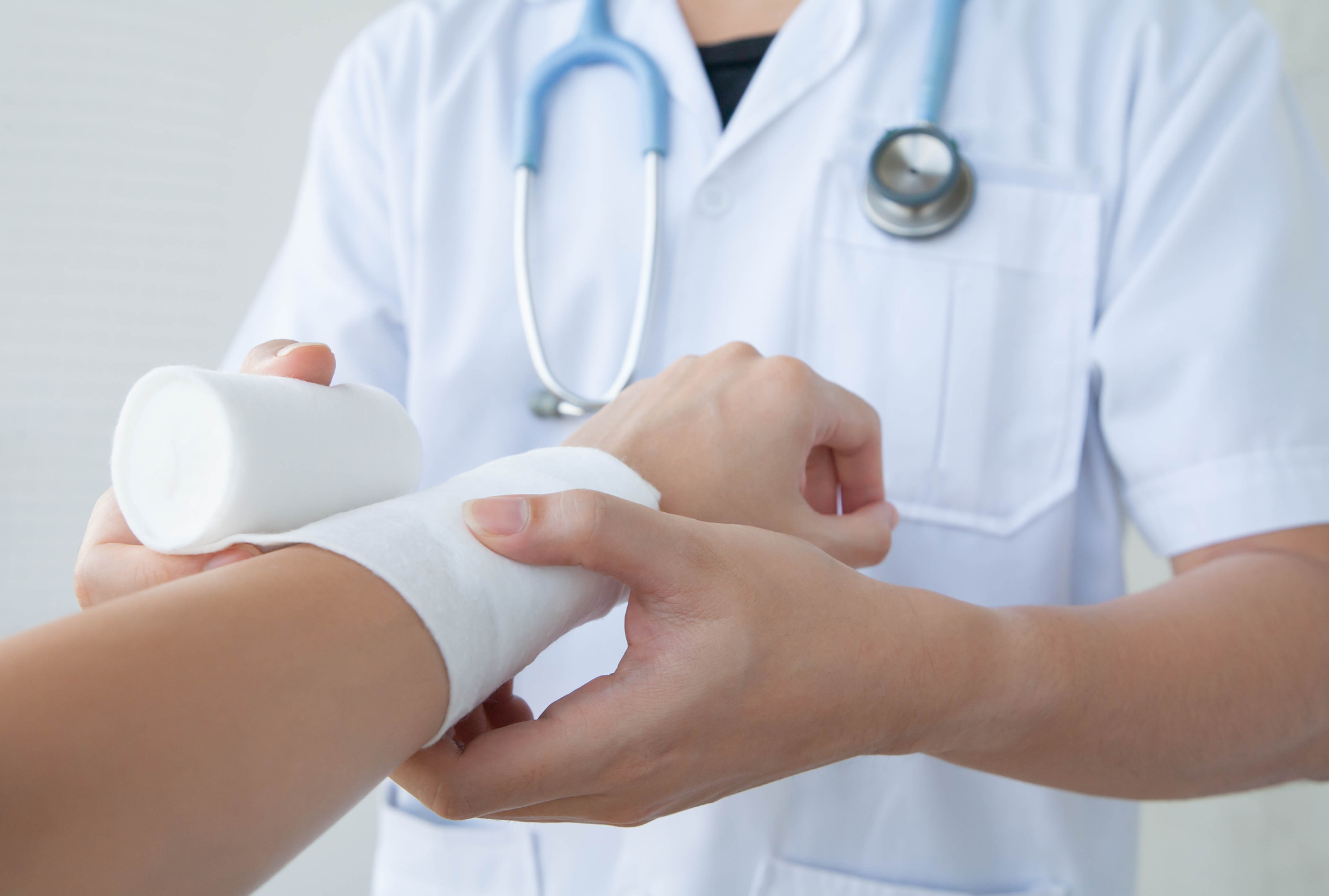Using Nanotechnology to Improve the Treatment of Chronic Skin Wounds
15 jun 2020

A preliminary study demonstrates that an innovative new approach could improve the targeting of antimicrobials for treating bacterial skin infections.
Certain skin injuries, such as burns or ulcers, are notoriously difficult to heal. Patients will often need prolonged medical care, which can seriously impact on their quality of life.
Treatment strategies for these chronic wounds include surgery to remove dead, damaged or infected tissue – and the use of antibiotics to combat bacterial infections. But biofilm formation is a huge issue. These densely packed communities of bacteria can attach to the wound surface, creating a barrier for conventional antimicrobials as well as impeding the body’s natural wound healing processes.
Doctors can treat biofilms using corrosive substances, such as bleach, to sterilise the wound – as well as with antimicrobial drugs or surgery. But none of these approaches are ideal as biofilms often shortly reappear – and the long–term use of antimicrobials can increase the risk of drug resistance.
Innovative Combinations
Researchers are aiming to develop sophisticated new nanoparticle-based systems that can help boost the effectiveness of conventional antimicrobials, such as doxycycline, by specifically targeting their delivery to the infected site. Another innovative technology involves the use of dissolving microneedles prepared from biodegradable polymers – which offers the possibility of painless, rapid drug delivery with the potential to penetrate through bacterial biofilms.
Using a combination of these two approaches could offer an exciting new opportunity to improve the treatment of chronic wounds while avoiding the need for surgery.
In a new study, published in the International Journal of Pharmaceutics, scientists investigate the potential of using nanoparticle-based dissolving microneedles of doxycycline to enhance the treatment of bacterial biofilm skin infection.1
Needle-Free Drug Targeting
The researchers prepared nanoparticles from a combination of two biodegradable polymers – PLGA and PCL – coated with chitosan, a natural polysaccharide derived from the shells of crustaceans. They showed that these nanoparticles had enhanced antimicrobial and antibiofilm activity when loaded with doxycycline – and up to a 7–fold improvement in drug release in the presence of biofilm-producing bacteria.
The team then loaded these nanoparticles into dissolving microneedles and tested their ability to penetrate and kill biofilms in two laboratory-based skin models. They found that this combined approach led to marked improvements in the drug release profile compared to a needle-free patch – as well as reductions of more than 97% to the bacterial bioburden.
The researchers used ultrapure water generated by an ELGA PURELAB® laboratory water purification system for their experiments, minimising the risk of introducing contaminants that may affect their results.
Hope for Patients
The results of these proof–of–concept studies suggest that combining nanoparticles with dissolving microneedles could offer a way to successfully target and enhance the antimicrobial activities of doxycycline – offering exciting new opportunities to overcome some of the key challenges in the treatment of chronic skin wounds.
The next steps will be to carry out further comprehensive studies to evaluate the safety and effectiveness of this unique delivery system in a suitable in vivo model.
Why Choose ELGA LabWater?
ELGA LabWater has been a trusted name in pure and ultrapure water since 1937. Our dedication to ultrapure and pure water is a guarantee that we will continue to provide the best solutions with the best service.
Reference:
- Permana, A.D. et al. Bacterially sensitive nanoparticle-based dissolving microneedles of doxycycline for enhanced treatment of bacterial biofilm skin infection: A proof of concept study. Int J Pharm 2020; Mar 9:119220
Dr Alison Halliday
After completing an undergraduate degree in Biochemistry & Genetics at Sheffield University, Alison was awarded a PhD in Human Molecular Genetics at the University of Newcastle. She carried out five years as a Senior Postdoctoral Research Fellow at UCL, investigating the genes involved in childhood obesity syndrome. Moving into science communications, she spent ten years at Cancer Research UK engaging the public about the charity’s work. She now specialises in writing about research across the life sciences, medicine and health.
